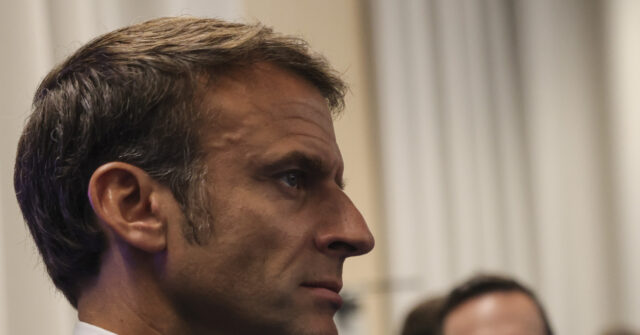In the wake of Prime Minister Michel Barnier’s resignation, French President Emmanuel Macron is actively seeking a political arrangement that would facilitate not just the appointment of a new prime minister but also ensure the stability of the nation. Spokesperson Maud Bregeon conveyed Macron’s statements during a recent Cabinet meeting, underscoring that there is currently no “broader” political alliance beyond the existing coalition of centrists and the conservative Republicans party, which lacks a parliamentary majority. This political maneuver comes after a significant no-confidence vote related to budgetary disputes, leaving France in a precarious situation with no effective governing body in place.
Macron reaffirmed his commitment to remain in office until the end of his term in 2027, despite the unfolding political turmoil. Following Barnier’s resignation, the need for functional governance intensifies as the outgoing government remains tasked with managing current affairs. Bregeon mentioned two principal strategies being evaluated by Macron. The first involves an effort to “broaden the alliance” by potentially incorporating members from the left into the government, thereby establishing a parliamentary majority. The second strategy entails negotiating with leftist opposition parties to secure their promise of non-interference in terms of no-confidence votes, granting the future government greater operational stability.
Discussions have been ongoing, with Macron engaging with both left and right-wing politicians, including Socialist leaders who are pivotal in forming a more cohesive and stable governance framework. Notably, these talks have deliberately excluded extreme factions, such as Marine Le Pen’s National Rally and Jean-Luc Mélenchon’s France Unbowed. Macron’s stances reflect a preference for dialogue with more moderate entities to foster an environment conducive to cooperation and compromise in a divided political landscape.
Le Pen, who played a critical role in Barnier’s ousting by supporting the no-confidence motion, has pressed the future leadership to consider her party’s proposals aimed at preserving the purchasing power of French citizens. She emphasized that the incoming prime minister must engage with all political parties and construct a budget that respects the priorities and “red lines” of each diverse faction involved. Le Pen asserted that collaboration to achieve this goal is “perfectly doable,” highlighting the necessity for inclusivity and understanding within the governmental dialogue.
In light of the ongoing complexities, the outgoing government has introduced a special bill ensuring that the state can levy taxes based on the existing year’s rules to prevent an operational shutdown. This transitional measure aims to maintain public services and uphold financial responsibilities until a new budget law for 2025 is drafted and passed by the forthcoming government. Outgoing budget minister Laurent Saint-Martin has characterized this legislative action as temporary, vital for guaranteeing the continuity of state functions amidst uncertainties in governance.
As the political landscape continues to evolve, the urgency for a solidified government presence grows increasingly apparent. The incoming prime minister will bear the significant responsibility of addressing pressing issues, including economic stability and public service continuity. With Macron’s discussions and negotiations positioning themselves as catalysts for change, the political dynamics between various factions will ultimately shape the governance of France in the coming months. The successful navigation of these challenges will depend heavily on the ability of the newly appointed leadership to foster mutual cooperation in a divided assembly and ensure that France remains on a steady path towards political and economic resilience.

